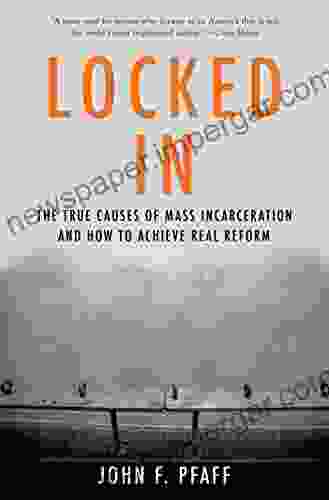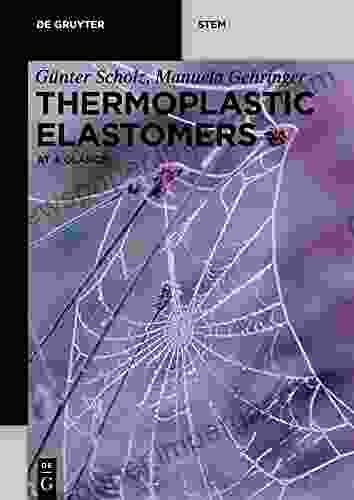Unraveling the True Causes of Mass Incarceration: A Path to Meaningful Reform

Mass incarceration has become a pervasive issue in modern society, afflicting millions of individuals and families. The United States, in particular, has the highest incarceration rate in the world, with over 2 million people behind bars. This alarming statistic demands our attention and a comprehensive examination of the underlying factors contributing to this crisis. In this article, we will delve into the true causes of mass incarceration and propose practical solutions for achieving real reform.
Historical Roots of Mass Incarceration
The roots of mass incarceration in the United States can be traced back to the era of slavery and racial oppression. Following the abolition of slavery, the criminal justice system became a tool to control and suppress African American communities. Vagrancy laws and other discriminatory practices were used to target Black people, leading to their disproportionate representation in the prison system.
4.7 out of 5
| Language | : | English |
| File size | : | 8163 KB |
| Text-to-Speech | : | Enabled |
| Screen Reader | : | Supported |
| Enhanced typesetting | : | Enabled |
| X-Ray | : | Enabled |
| Word Wise | : | Enabled |
| Print length | : | 321 pages |
During the 1970s and 1980s, the "War on Drugs" fueled a surge in incarcerations. With the passage of harsh drug laws, particularly those targeting crack cocaine, the number of people behind bars soared. These laws had a devastating impact on communities of color, who were disproportionately arrested and sentenced for drug offenses.
Socioeconomic Factors
Economic and social inequalities play a significant role in mass incarceration. Poverty, unemployment, and lack of access to quality education and healthcare contribute to crime and facilitate entry into the criminal justice system. Communities with limited economic opportunities are often underserved by social services, leading to increased levels of crime and violence.
The criminal justice system often fails to address the root causes of crime, such as poverty and mental health issues. Instead, it employs punitive measures that do little to rehabilitate individuals or reduce recidivism.
Racial Disparities
Despite constituting only about 13% of the U.S. population, African Americans account for over a third of the prison population. This racial disparity is a direct result of systemic racism within the criminal justice system.
From biased policing practices to unequal sentencing, Black individuals are disproportionately impacted at every stage of the criminal justice process. Racial profiling, stop-and-frisk policies, and discriminatory drug enforcement contribute to the over-incarceration of African Americans.
Mandatory Minimum Sentencing
Mandatory minimum sentencing laws require judges to impose predetermined minimum sentences for certain crimes, regardless of individual circumstances. These laws have led to excessive sentences, particularly for drug offenses, and have played a significant role in the rise of mass incarceration.
Mandatory minimums have eliminated judicial discretion and resulted in harsh punishments for nonviolent crimes, disproportionately harming communities of color.
Alternatives to Incarceration
Achieving real reform requires a shift away from the failed policies of mass incarceration. Instead, we need to invest in evidence-based, community-based alternatives that address the root causes of crime and promote rehabilitation.
- Community Policing: Building trust and fostering partnerships between law enforcement and communities can reduce crime and improve public safety.
- Education and Job Training: Providing educational and job training opportunities for incarcerated individuals and individuals at risk of entering the criminal justice system can break the cycle of poverty and crime.
- Drug Treatment and Mental Health Services: Expanding access to drug treatment and mental health services can reduce recidivism and promote rehabilitation.
- Restorative Justice: Restorative justice programs focus on accountability, healing, and community reconciliation, offering an alternative to traditional punishment.
- Harm Reduction: Policies that reduce the risks associated with drug use, such as harm reduction programs and overdose prevention sites, can save lives and reduce the number of individuals in prison for drug-related offenses.
Legislative Changes
In addition to investing in alternatives to incarceration, legislative reforms are necessary to address the systemic issues that contribute to mass incarceration.
- Revise Mandatory Minimum Sentencing Laws: Eliminating or reducing mandatory minimum sentences for nonviolent crimes would grant judges more discretion in sentencing and reduce the number of excessive punishments.
- Decriminalize Marijuana: Ending the prohibition of marijuana would reduce the number of arrests and sentences for drug offenses, particularly among communities of color.
- Expand Sentencing Reform: Implementing sentencing reform measures, such as earned time credits and compassionate release, would help to reduce the excessive prison population.
- Promote Pretrial Reform: Reducing pretrial detention by reforming bail policies and expanding access to diversion programs would ensure that individuals are not unjustly held in jail while awaiting trial.
Mass incarceration is a complex issue with deep historical and social roots. Achieving real reform requires a comprehensive approach that addresses the true causes of crime, invests in alternatives to incarceration, and enacts legislative changes. By working together, we can dismantle the mass incarceration system, promote justice, and create a more equitable and just society.
Free Download Your Copy Today:
To delve deeper into the true causes of mass incarceration and the path to real reform, Free Download your copy of the book "The True Causes Of Mass Incarceration And How To Achieve Real Reform." This insightful and thought-provoking book provides a comprehensive analysis of the issue and offers practical solutions for a fairer and more just criminal justice system.
4.7 out of 5
| Language | : | English |
| File size | : | 8163 KB |
| Text-to-Speech | : | Enabled |
| Screen Reader | : | Supported |
| Enhanced typesetting | : | Enabled |
| X-Ray | : | Enabled |
| Word Wise | : | Enabled |
| Print length | : | 321 pages |
Do you want to contribute by writing guest posts on this blog?
Please contact us and send us a resume of previous articles that you have written.
 Book
Book Novel
Novel Page
Page Chapter
Chapter Text
Text Story
Story Genre
Genre Reader
Reader Library
Library Paperback
Paperback E-book
E-book Magazine
Magazine Newspaper
Newspaper Paragraph
Paragraph Sentence
Sentence Bookmark
Bookmark Shelf
Shelf Glossary
Glossary Bibliography
Bibliography Foreword
Foreword Preface
Preface Synopsis
Synopsis Annotation
Annotation Footnote
Footnote Manuscript
Manuscript Scroll
Scroll Codex
Codex Tome
Tome Bestseller
Bestseller Classics
Classics Library card
Library card Narrative
Narrative Biography
Biography Autobiography
Autobiography Memoir
Memoir Reference
Reference Encyclopedia
Encyclopedia Jordan Vause
Jordan Vause John Hines
John Hines John Shiffman
John Shiffman Jonathan Swift
Jonathan Swift John Glatt
John Glatt John Stuart Mill
John Stuart Mill John R Vile
John R Vile John Wu
John Wu John M Marzluff
John M Marzluff John Hollway
John Hollway John Christopoulos
John Christopoulos John Mcphee
John Mcphee John M Curatola
John M Curatola Jonathan Silver
Jonathan Silver John Holl
John Holl Joji Parambath
Joji Parambath John Wills
John Wills Joseph Roth
Joseph Roth John E Hess
John E Hess Jorge Berger
Jorge Berger
Light bulbAdvertise smarter! Our strategic ad space ensures maximum exposure. Reserve your spot today!
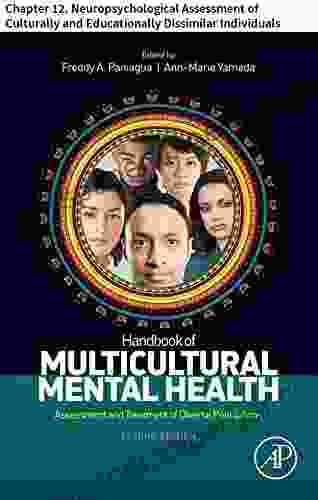
 Chadwick PowellHandbook of Multicultural Mental Health: A Guide to Working with Diverse...
Chadwick PowellHandbook of Multicultural Mental Health: A Guide to Working with Diverse...
 William ShakespeareHardy Ornamental Flowering Trees and Shrubs: A Comprehensive Guide to Create...
William ShakespeareHardy Ornamental Flowering Trees and Shrubs: A Comprehensive Guide to Create... Sam CarterFollow ·18k
Sam CarterFollow ·18k David MitchellFollow ·11.7k
David MitchellFollow ·11.7k Braeden HayesFollow ·9.7k
Braeden HayesFollow ·9.7k Jules VerneFollow ·4.2k
Jules VerneFollow ·4.2k Carson BlairFollow ·9.6k
Carson BlairFollow ·9.6k Will WardFollow ·19.2k
Will WardFollow ·19.2k Jeremy MitchellFollow ·16.2k
Jeremy MitchellFollow ·16.2k George Bernard ShawFollow ·7.8k
George Bernard ShawFollow ·7.8k
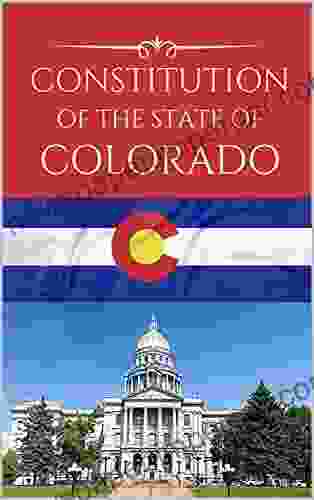
 Jake Powell
Jake PowellThe Constitution of the State of Colorado: A Legacy of...
Since its adoption in 1876, the...
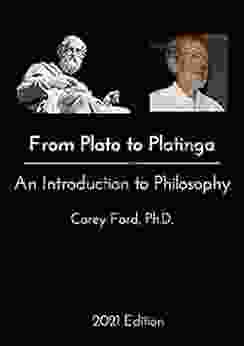
 Devin Ross
Devin RossFrom Plato to Plantinga: A Journey Through the History of...
Philosophy is the study of...

 Robin Powell
Robin PowellWords That Hurt, Words That Heal: The Power of Language...
Words are powerful. They can...

 T.S. Eliot
T.S. EliotTantalize Your Taste Buds with Over 90 Low-Carb Ethnic...
Indulge in a Culinary Adventure with "Over...
4.7 out of 5
| Language | : | English |
| File size | : | 8163 KB |
| Text-to-Speech | : | Enabled |
| Screen Reader | : | Supported |
| Enhanced typesetting | : | Enabled |
| X-Ray | : | Enabled |
| Word Wise | : | Enabled |
| Print length | : | 321 pages |


